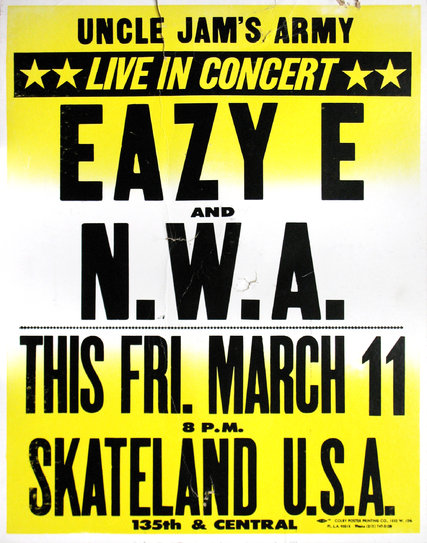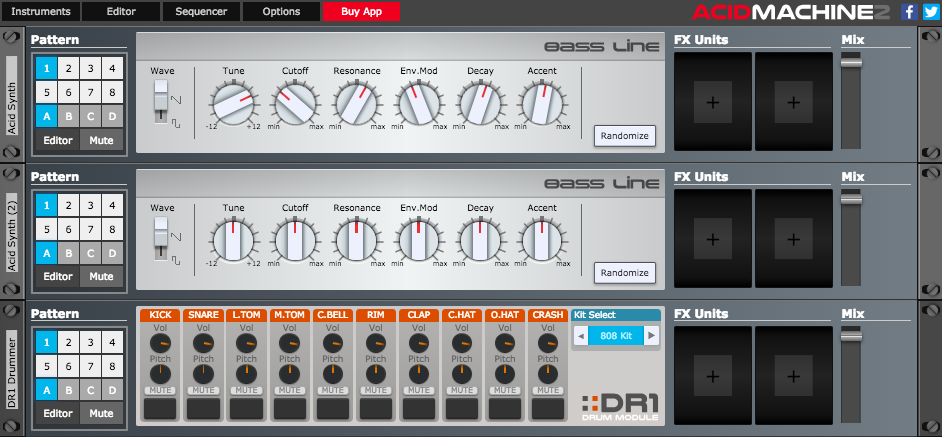Things tagged music:
Frank Bretschneider Boiler Room Berlin Live Set
Frank Bretschneider: One of the key activists of the electronic music underground in former East Germany, Frank Bretschneider has continued to revolutionize electronic music as part of raster-noton for the past 20 years. Today he presents his brand new album!
On Facebook
Darude - Sandstorm (Potato Cover)
As a fan of Sandstorm covers with alternate instruments, I can’t not post this:
Of course this will never be topped:
Stewart Brand Revisits the Trips Festival, 50 Years Later
Gabe Meline inteviews Stewart Brand at KQED:
The psychedelic thing mainly was a signifier that one was part of a certain cohort, of a certain body of people who were of a certain age, who got to know each other. It was social in that sense. As a drug, I think it’s probably not as social as Ecstasy, or MDMA – which I haven’t tried, but its reputation is highly social. The formula I was working on with public events and with the WELL is that you collect a bunch of interesting in the same place at the same time, and then turn up the flame – such that they mix more rapidly, and their budding emotion is more intense. It’s just the basic formula of how you make a good party. I’m not a party animal. But maybe because of that, if there is going to be a party that I am involved in, I want to make sure it’s overwhelming.
What Makes A Great DJ?
What makes a great DJ? Kristan Caryl asked a group of top selectors including Dave Clarke, Mr G, Mosca and Serge.
Spencer Parker: DJs should play what the fuck they love, or give the fuck up! I know for a solid gold fact that there are records out there, at this very time, which I hate, that are the biggest hype tracks of the moment and that would definitely get a big reaction if I were to play them. But I never play them. The next DJ can play those records and he or she can get all the glory. And thats’s fine by me. I’m there to play the records I adore, otherwise what’s the point?
The Roller Rink Origins of N.W.A.
In a city Balkanized by gangs, Skateland became a refuge. Schweisinger thought the skating business could be successful. He didn’t imagine that within few months his rink would become the most important hip-hop venue in the history of South Los Angeles.
Mills, Hood and FM Synthesis as a Metaphor
Recently while preparing a lecture on the influence of gear on music I puzzled over the formal differences between Chicago’s house and Detroit’s techno. Both owed a lot to the restrictions inherent in Roland’s rigid TR-808 and TR-909 drum machines and the absence of a budget for much more of a set-up. There are so many commonalities that I wondered what the general differences really are. And I don’t seem to be the only one confused. Reportedly, Derrick May thought they were doing house music – until Juan Atkins insisted on the techno tag, which he in turn had borrowed from Alvin Toffler. Researching gear lists, I eventually stumbled upon a device named DX100. It was used by virtually every Detroit producer (including Derrick May: somebody said Nude Photo employs the “Wood Piano” preset) and there were periods where it was the only other sound source in the set-ups of Jeff Mills and fellow minimalist Robert Hood, aside from a TR-909 drum machine. Core lessons learned while adapting to FM have been applied to other synthesizer (and synthesis) models later, shifting the focus of programming from the keyboard-derived approaches of 1970s art rock and fusion to the synthesizer’s modulation matrix.
Love this:
FM taken as a metaphor hints at the problem that in a perception-based production scenario (such as techno’s paradigmatic mode of operation) all parameters are effectively bundled and thus exist in a state of permanent dynamic cross-modulation. Each layer is modulated by all others, mirroring the others, imprinting contours onto each other. Everything is melting into a convoluted perceptual entity where the products of cross-modulation form their own emergent aesthetic layer. No doubt that the stark patterns have obvious rhythmic values, but all the time these also carry other information that wouldn’t exist without a carrier for it to be projected on. Although individual parameters (such as rhythm, pitch or compression ratio) can be described in isolation, such descriptions fail to identify the corresponding functions of their values and movements in context, i.e. their cross-modulated products are missing from the description. The exactly same movement of one parameter may “mean” totally different things in different contexts. One might also recall that outside of scores and measurements, i.e. while listening, we actually never encounter parameters in isolation (no pitch without timbre, no rhythm without duration …): there is no such thing as an independent variable.
Southeast Asia's Best Underground Clubs
Night clubs in Southeast Asia are mostly focussed on high-end clubbing, big-room EDM, bottle service and so on. For those people who seek this kind of experience, they could have their best night out, since this industry is booming. But there’s always one our two outsiders that are hungry for new music that they’ve never heard before. Looking for new places, where it doesn’t matter what you are wearing, where you’re from or how much money you have - places where the only thing that matters is the music! Those kind of clubs are hard to find in Asia, but if you’re looking deep enough into the scene you might be lucky enough to stumble upon one. As a matter of fact, underground clubs should’nt be listed in a top list, so you could find out for yousrelf, but in case you need a little help, we’ve enlisted a few that you might wanna check out during your Asia trip.
Steve Reich stuff
A new game based on Steve Reich’s iconic Clapping Music lets anyone improve their rhythm.
The app on iTunes.
A good interview:
It’s Gonna Rain part II:
And this is just wonderful:


